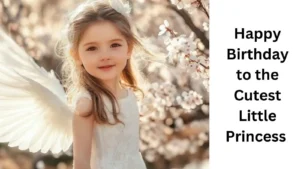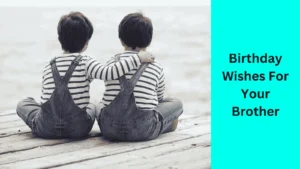Saying goodbye to a toxic relationship can be one of the most challenging and emotional experiences in life. It often involves letting go of pain, embracing self-worth, and finding the courage to move forward.
Whether you’re seeking closure or looking for words to help others navigate this tough journey, these quotes capture the essence of final goodbyes and the strength needed to end toxic connections. Here’s a collection of poignant quotes to reflect on and find strength in during this significant transition.
Moving On
“The only way to deal with toxic people is to cut them out of your life and never look back.”
- Author: Buddha
- Description: Emphasizes the importance of removing toxic individuals from your life to foster healing and growth.
“Sometimes the best way to move forward is to let go of the past.”
- Author: Buddha
- Description: Highlights the necessity of releasing past hurts to make way for a better future.
“Letting go of someone who doesn’t value you is not a loss; it’s a gain of self-respect.”
- Author: Buddha
- Description: Focuses on the positive outcome of letting go of a relationship that doesn’t respect or appreciate you.
“Ending a toxic relationship is not a failure; it’s an act of self-love.”
- Author: Buddha
- Description: Frames the end of a toxic relationship as a positive step towards self-care and self-respect.
“You don’t have to set yourself on fire to keep others warm.”
- Author: Buddha
- Description: Reminds you that sacrificing your own well-being for others is not necessary or healthy.
“Sometimes the hardest part of moving on is accepting that the person you wanted to be with wasn’t good for you.”
- Author: Buddha
- Description: Acknowledges the difficulty in accepting that someone who seemed right for you was actually detrimental.
“You can’t heal in the same environment that made you sick.”
- Author: Buddha
- Description: Stresses the importance of changing your surroundings to foster healing and recovery.
“Letting go is not giving up; it’s accepting that there are things that cannot be.”
- Author: Buddha
- Description: Differentiates between giving up and accepting that some relationships are beyond repair.
“Sometimes you have to walk away from people, not because you don’t care, but because they don’t.”
- Author: Buddha
- Description: Highlights that walking away is often a result of realizing that others are not valuing you as you deserve.
“It’s not selfish to love yourself; it’s necessary.”
- Author: Buddha
- Description: Reinforces the idea that prioritizing self-love and self-care is crucial for well-being.
Empowerment
“I am not what happened to me. I am what I choose to become.”
- Author: Carl Jung
- Description: Encourages taking control of your own life and identity, regardless of past experiences.
“No one can make you feel inferior without your consent.”
- Author: Eleanor Roosevelt
- Description: Reminds you that your self-worth is not determined by others’ opinions or actions.
“Self-respect is the cornerstone of all virtue.”
- Author: John Herschel
- Description: Emphasizes that respecting oneself is fundamental to maintaining all other virtues.
“You are not a victim; you are a survivor.”
- Author: Buddha
- Description: Frames your experience as a testament to resilience rather than victimhood.
“The best revenge is massive success.”
- Author: Frank Sinatra
- Description: Suggests that achieving personal success is the best way to move past a toxic relationship.
“Sometimes you have to forget what you feel and remember what you deserve.”
- Author: Buddha
- Description: Encourages focusing on what you deserve rather than clinging to feelings that are not serving you well.
“Your value doesn’t decrease based on someone’s inability to see your worth.”
- Author: Buddha
- Description: Reinforces that your worth is inherent and not dependent on others’ recognition or treatment.
“You’ve been there for everyone else; now it’s time to be there for yourself.”
- Author: Buddha
- Description: Highlights the importance of prioritizing self-care and support after ending a toxic relationship.
“The right person will make you feel good about yourself. The wrong person will make you question your worth.”
- Author: Buddha
- Description: Distinguishes between healthy and toxic relationships based on how they impact your self-esteem.
“You owe yourself the love that you so freely give to other people.”
- Author: Buddha
- Description: Reminds you to extend the same love and care to yourself that you offer to others.
Closure
“Closure is not about seeking revenge or getting answers; it’s about finding peace within yourself.”
- Author: Buddha
- Description: Emphasizes that closure comes from inner peace rather than external actions or responses.
“Sometimes the hardest part of moving on is accepting that the past is gone and the future is a new beginning.”
- Author: Buddha
- Description: Acknowledges the difficulty of letting go of the past and embracing a fresh start.
“You don’t need to have all the answers; you just need to know that it’s time to move on.”
- Author: Buddha
- Description: Focuses on the importance of recognizing when it’s time to move forward, regardless of unanswered questions.
“The best way to get over someone is to get under someone else.”
- Author: Buddha
- Description: Suggests that finding new connections can help in moving on from a past relationship.
“Sometimes closure is just accepting that there are things you’ll never understand.”
- Author: Buddha
- Description: Highlights that accepting uncertainty can be a crucial part of finding closure.
“The hardest part about moving on is accepting that the person you thought you knew was never really there.”
- Author: Buddha
- Description: Reflects on the challenge of recognizing that the person you were involved with was not genuine.
“True closure comes when you let go of the hope that the past could be any different.”
- Author: Buddha
- Description: Emphasizes the importance of accepting the past as it is in order to find true closure.
“The end of one chapter is the beginning of a new story.”
- Author: Buddha
- Description: Frames the end of a relationship as the start of a new and potentially better phase in life.
“Sometimes the hardest part of moving on is seeing the person you once loved with someone else.”
- Author: Buddha
- Description: Acknowledges the emotional difficulty of seeing an ex-partner with a new partner.
“Closure is a gift you give to yourself, not to the other person.”
- Author: Buddha
- Description: Frames closure as an internal process and a self-gift rather than something you owe to the other person.
Strength and Resilience
“Your greatest strength is the ability to start over after a difficult ending.”
- Author: Buddha
- Description: Highlights resilience and strength in beginning anew after a tough ending.
“Sometimes the most difficult battles are the ones we fight within ourselves.”
- Author: Buddha
- Description: Acknowledges that inner struggles can be the hardest to overcome.
“You are stronger than you think and braver than you believe.”
- Author: Buddha
- Description: Reinforces the idea of inherent strength and bravery within oneself.
“Letting go isn’t about giving up; it’s about accepting that there are things you cannot change.”
- Author: Buddha
- Description: Differentiates letting go from giving up, emphasizing acceptance over control.
“Sometimes the strongest people are the ones who have to let go of what they thought they wanted.”
- Author: Buddha
- Description: Emphasizes the strength required to let go of things that were once desired but are no longer beneficial.
“Every ending is a new beginning in disguise.”
- Author: Buddha
- Description: Frames endings as opportunities for new starts and positive changes.
“Your scars are a reminder of your strength and resilience.”
- Author: Buddha
- Description: Views emotional scars as symbols of the strength and endurance you’ve demonstrated.
“It takes a lot of courage to let go of what you thought was meant for you.”
- Author: Buddha
- Description: Recognizes the bravery involved in releasing what you believed was destined for you.
“Strength is not about how much you can handle before you break, but about how much you can handle after you’ve been broken.”
- Author: Buddha
- Description: Defines strength in terms of recovery and resilience after facing difficulties.
“You are not defined by your past but by how you rise from it.”
- Author: Buddha
- Description: Emphasizes that your identity and worth are determined by your actions and growth after past challenges.
Freedom and New Beginnings
“Ending a toxic relationship is not the end of your life; it’s the start of a new chapter.”
- Author: Buddha
- Description: Frames the end of a toxic relationship as the beginning of a fresh and positive phase.
“Sometimes freedom comes from breaking away from what you thought was your whole world.”
- Author: Buddha
- Description: Highlights that true freedom often involves letting go of something you once held dear.
“A new beginning is not the end of your journey; it’s the start of a new adventure.”
- Author: Buddha
- Description: Views new beginnings as exciting opportunities rather than just an ending.
“The best way to predict your future is to create it yourself.”
- Author: Peter Drucker
- Description: Encourages taking control of your future and shaping it according to your desires.
“Embrace the freedom that comes with letting go of what no longer serves you.”
- Author: Buddha
- Description: Promotes the idea of embracing the positive change and freedom achieved by letting go of unhelpful relationships.
“Sometimes the hardest part of moving on is accepting that you deserve better.”
- Author: Buddha
- Description: Acknowledges the challenge of recognizing and accepting that you are worthy of better.
“Every new beginning comes from some other beginning’s end.”
- Author: Seneca
- Description: Recognizes that every new start is a result of closing another chapter.
“Letting go is the first step towards freedom and self-discovery.”
- Author: Buddha
- Description: Frames letting go as a crucial step in the journey towards personal freedom and self-discovery.
“The end of one chapter is just the beginning of another story filled with new possibilities.”
- Author: Buddha
- Description: Emphasizes that endings are just opportunities for new and exciting possibilities.
“Freedom is the ultimate gift you give yourself when you release what’s holding you back.”
- Author: Buddha
- Description: Highlights that true freedom comes from letting go of constraints and barriers.
Self-Worth and Healing
“Your worth is not determined by the opinions of others but by how you see yourself.”
- Author: Buddha
- Description: Reinforces that self-worth is based on your own self-perception, not others’ views.
“Healing begins with accepting that you deserve better and taking steps towards it.”
- Author: Buddha
- Description: Stresses that healing starts with recognizing your own worth and making changes to improve your situation.
“You are not broken; you are healing and becoming whole again.”
- Author: Buddha
- Description: Frames the healing process as a journey towards becoming whole, rather than focusing on brokenness.
“Your self-worth is not tied to someone else’s inability to see it.”
- Author: Buddha
- Description: Emphasizes that your value is inherent and not dependent on others recognizing it.
“Self-care is not selfish; it’s necessary for your well-being and growth.”
- Author: Buddha
- Description: Promotes the importance of taking care of yourself as essential for personal health and development.
“You deserve to be treated with respect, kindness, and love—by yourself and others.”
- Author: Buddha
- Description: Highlights that respect and love are essential rights you should receive from yourself and those around you.
“Healing is not linear; it’s a journey with ups and downs, but every step is progress.”
- Author: Buddha
- Description: Acknowledges that the healing process involves fluctuations but each step forward is meaningful.
“Your past does not define your future; your choices do.”
- Author: Buddha
- Description: Emphasizes that your future is shaped by your current decisions rather than your past experiences.
“You are worthy of love and happiness, regardless of your past relationships.”
- Author: Buddha
- Description: Reinforces that your value and deservingness of happiness are not diminished by past experiences.
“Your journey to self-worth begins with the decision to believe in your own value.”
- Author: Buddha
- Description: Stresses that self-worth starts with a personal decision to recognize and believe in your own value.
Overcoming Challenges
“The challenges you face today will build the strength you need for tomorrow.”
- Author: Buddha
- Description: Emphasizes that overcoming current difficulties will prepare you for future strength.
“Every setback is a setup for a comeback.”
- Author: Buddha
- Description: Frames setbacks as opportunities to rebound and achieve greater things.
“The hardest challenges often lead to the most rewarding victories.”
- Author: Buddha
- Description: Recognizes that significant challenges can lead to fulfilling and rewarding outcomes.
“In the middle of difficulty lies opportunity.”
- Author: Albert Einstein
- Description: Suggests that challenges can present opportunities for growth and advancement.
“Strength grows in the moments when you think you can’t go on but you keep going anyway.”
- Author: Buddha
- Description: Highlights that true strength is developed through perseverance in tough times.
“Every challenge is an opportunity to grow stronger and wiser.”
- Author: Buddha
- Description: Views challenges as chances to gain strength and wisdom.
“Sometimes the greatest battles are fought within the mind.”
- Author: Buddha
- Description: Acknowledges that internal struggles can be some of the most significant challenges.
“Your current situation is not your final destination; the best is yet to come.”
- Author: Buddha
- Description: Encourages hope and optimism for a brighter future despite current difficulties.
“Strength is not about how you handle success; it’s about how you face adversity.”
- Author: Buddha
- Description: Defines strength in terms of dealing with difficulties rather than just success.
“Every storm runs out of rain, and after it, the sun will shine again.”
- Author: Buddha
- Description: Offers hope that after difficult times, better days will come.
Emotional Release
“Releasing what no longer serves you is a powerful act of self-love.”
- Author: Buddha
- Description: Frames letting go of unhelpful relationships as an act of self-care.
“It’s okay to cry and feel pain; it’s a part of healing and moving on.”
- Author: Buddha
- Description: Validates emotional expression as a necessary part of the healing process.
“Letting go is a process, not an event; be patient with yourself.”
- Author: Buddha
- Description: Emphasizes that the process of letting go takes time and self-compassion.
“Sometimes the most healing thing you can do is to let yourself feel and release your emotions.”
- Author: Buddha
- Description: Highlights the importance of acknowledging and releasing emotions for healing.
“You don’t have to have all the answers; sometimes you just need to release and trust the process.”
- Author: Buddha
- Description: Suggests that trusting the process and letting go is more important than having all the answers.
“Allow yourself to feel the pain, but don’t let it control your life.”
- Author: Buddha
- Description: Encourages experiencing pain without allowing it to dominate your existence.
“Emotional release is not a sign of weakness; it’s a step towards healing.”
- Author: Buddha
- Description: Frames emotional release as a necessary and strong part of the healing journey.
“It’s important to let go of negative emotions to make space for positive experiences.”
- Author: Buddha
- Description: Emphasizes that releasing negativity can open the door to positive experiences.
“The more you hold on to hurt, the longer it will take to heal. Letting go is a step towards recovery.”
- Author: Buddha
- Description: Highlights the need to release hurt to facilitate healing and recovery.
“Letting go of the past is not forgetting; it’s choosing to focus on the future.”
- Author: Buddha
- Description: Differentiates between forgetting and focusing on a positive future after letting go.
Finding Peace
“Peace comes from within; do not seek it without.”
- Author: Buddha
- Description: Stresses that inner peace is cultivated from within rather than being sought externally.
“Finding peace often means letting go of the things that disturb your inner calm.”
- Author: Buddha
- Description: Suggests that achieving peace involves removing disturbances from your life.
“Peace is not the absence of problems, but the presence of calm and acceptance.”
- Author: Buddha
- Description: Defines peace as a state of calm and acceptance despite ongoing problems.
“The first step to finding peace is accepting that some things are beyond your control.”
- Author: Buddha
- Description: Emphasizes that peace begins with accepting what you cannot change.
“True peace is found when you let go of the need for things to be perfect.”
- Author: Buddha
- Description: Suggests that accepting imperfection is key to finding inner peace.
“Inner peace is achieved by releasing anger, fear, and resentment.”
- Author: Buddha
- Description: Highlights that letting go of negative emotions is essential for inner peace.
“Peace is a journey, not a destination; it’s a process of continuous growth and understanding.”
- Author: Buddha
- Description: Frames peace as an ongoing process rather than a final state.
“The more you let go, the more peace you’ll find.”
- Author: Buddha
- Description: Suggests that letting go of burdens and negative emotions leads to greater peace.
“True peace is found in the acceptance of what is and the release of what was.”
- Author: Buddha
- Description: Emphasizes that peace comes from accepting the present and letting go of the past.
“Peace begins with a smile and a willingness to let go of past hurts.”
- Author: Buddha
- Description: Frames peace as starting with a positive attitude and the release of past grievances.
Self-Discovery
“Sometimes we have to lose ourselves in order to find who we truly are.”
- Author: Buddha
- Description: Suggests that losing oneself can lead to profound self-discovery and understanding.
“Self-discovery is not about becoming someone new; it’s about rediscovering who you’ve always been.”
- Author: Buddha
- Description: Frames self-discovery as a process of reconnecting with your true self rather than reinventing yourself.
“In the midst of change, we find our true selves.”
- Author: Buddha
- Description: Emphasizes that change often leads to a deeper understanding of oneself.
“Self-discovery is a journey, not a destination; embrace the process.”
- Author: Buddha
- Description: Encourages viewing self-discovery as an ongoing journey rather than a final goal.
“To discover yourself, you must be willing to let go of who you think you should be.”
- Author: Buddha
- Description: Highlights that true self-discovery involves releasing preconceived notions of oneself.
“Your journey to self-discovery begins with the courage to be honest with yourself.”
- Author: Buddha
- Description: Emphasizes that honesty with oneself is crucial for genuine self-discovery.
“Self-discovery is about finding the strength within yourself that you never knew existed.”
- Author: Buddha
- Description: Frames self-discovery as a process of uncovering hidden inner strength.
“Embrace who you are, not who you think others want you to be.”
- Author: Buddha
- Description: Encourages authenticity and self-acceptance over conforming to external expectations.
“The journey of self-discovery is about understanding and accepting your own story.”
- Author: Buddha
- Description: Highlights that self-discovery involves understanding and embracing your personal narrative.
“Through self-discovery, you find the freedom to be your true self.”
- Author: Buddha
- Description: Suggests that self-discovery leads to personal freedom and authenticity.

Dariel Campbell, the visionary behind GetWisherz.com, infuses every wish with his signature blend of wit and warmth. His innovative ideas and passion for spreading joy are the driving forces behind the platform. Dariel’s exceptional ability to connect with people through his words makes him the heart and soul of every celebration.










